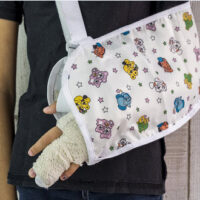Do Property Owners Owe a Greater Duty of Care to Children?

In Florida, property owners are required to take reasonable measures to ensure that their visitors, customers, and clients are kept safe from harm while on their premises. This usually involves regularly inspecting the property, making any needed repairs, and warning visitors of hidden dangers. This is true for both residential property owners and those who own commercial establishments. However, what qualifies as reasonable, depends in large part on the age of the visitor. For this reason, children, who are generally presumed to lack the ability and maturity to make clear and logical decisions, are owed a greater duty of care by property owners than are adults. Premises liability law can be complicated, so if your child was injured on someone else’s property and you have questions about their degree of fault, it is important to contact an experienced premises liability attorney who can address your concerns.
Why are Children Treated Differently for the Purposes of Premises Liability?
In a groundbreaking case decided in 1941, the Florida Supreme Court stated that children are owed a greater duty of care by property owners because they don’t comprehend danger as adults do. According to the Court, this means that store owners and other commercial property owners must take additional steps to keep their premises safe when children are present. However, the degree of care that must be used depends not only on the situation, but also the age of the child.
What Duty of Care do Property Owners Owe to Children?
Business owners whose clientele or customers will include children must take steps to monitor and maintain the entirety of their establishment. This means that a restaurant owner would need to inspect and repair not only booths, tables, and bathrooms, but also parking lots, flooring, and doorways. Similarly, homeowners must ensure that their residences, as well as their yards and driveways are kept safe for underage visitors. However, this doesn’t necessarily mean that a property must be 100 percent danger proof. In fact, that is often nearly impossible to do when it comes to young children. Instead, property owners must take reasonable steps to make sure that children are safe when visiting their property.
Proving a Premises Liability Claim
An injured child, through his or her parent or guardian, can only recover damages if he or she can prove that the property owner was negligent, which generally involves demonstrating that a dangerous condition on the defendant’s property caused the child’s injury. The plaintiff, or the child’s parent, must then provide evidence showing that:
- The defendant actually knew or should have known of the dangerous condition; or
- The defendant had constructive knowledge of the dangerous condition.
Finally, plaintiffs must demonstrate that it was foreseeable that harm could result from the dangerous condition. It’s also important to note that in cases where a hazard qualifies as open and obvious, the property owners are presumed to know that the dangerous condition exists.
Contact Our Legal Team Today
To speak with an experienced premises liability attorney, please contact our legal team at Boone & Davis in Fort Lauderdale by calling 954-566-9919 or by sending us an online message.
Resource:
scholar.google.com/scholar_case?about=8148489130496517537&q=McCain+v.+Bankers+Life+&+&hl=en&as_sdt=6,44
